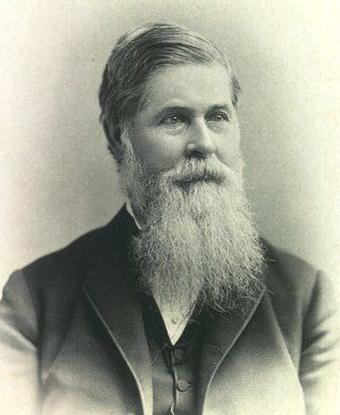Last updated: August 4, 2023
Person
Jay Cooke

Born in Sandusky Ohio in 1821, Jay Cooke was the son of a frontier lawyer and politician. As a young man, he relocated to Philadelphia where he worked at E.W. Clarke and Company, a banking house where he was schooled in finance and banking operations. In 1861 Cooke opened up his own banking house, Jay Cooke and Company, where he dealt gold, sold and bought notes of state banks, traded foreign exchanges, and served as a broker.
The outbreak of the Civil War 1861 created a great opportunity for a man of Cooke's financial acumen, as the Union war effort required considerable financing. Shortly after the war began he floated a three million dollar loan to the Commonwealth of Pennsylvania. In the months that followed, he helped Secretary of the Treasury Salmon Chase secure loans from other leading banks in the North. He also succeeded where the Treasury Department had failed in selling half a billion dollars worth of "five-twenty" bonds (so-called as they could be cashed in in five years and matured in 20). Cooke reaped an enormous commission from the sale, which he use do finance a successful nationwide bond-marketing campaign, appealing to both the patriotism and desire to turn a profit of Americans.
Due to his previous success in marketing and selling war bond, in January 1865, Cooked was again called on to handle a handle the sales of bonds where the Treasury Department had failed. In six months, he sold nearly a billion dollars worth of bonds whose proceeds allowed the Union armies to be equipped and pad for the last months of the war. After the war, Cooke assisted in the development of the American northwest, financing the construction of the Northern Pacific Railway in 1870. However, Cooke overestimated its capital for the project and in the ensuing Panic of 1873, his company suspended operations and Cooke himself was forced into bankruptcy. By 1880, though, Cooke had met all his financial obligations and rebuilt his fortune though the investment in a Utah silver mine.
